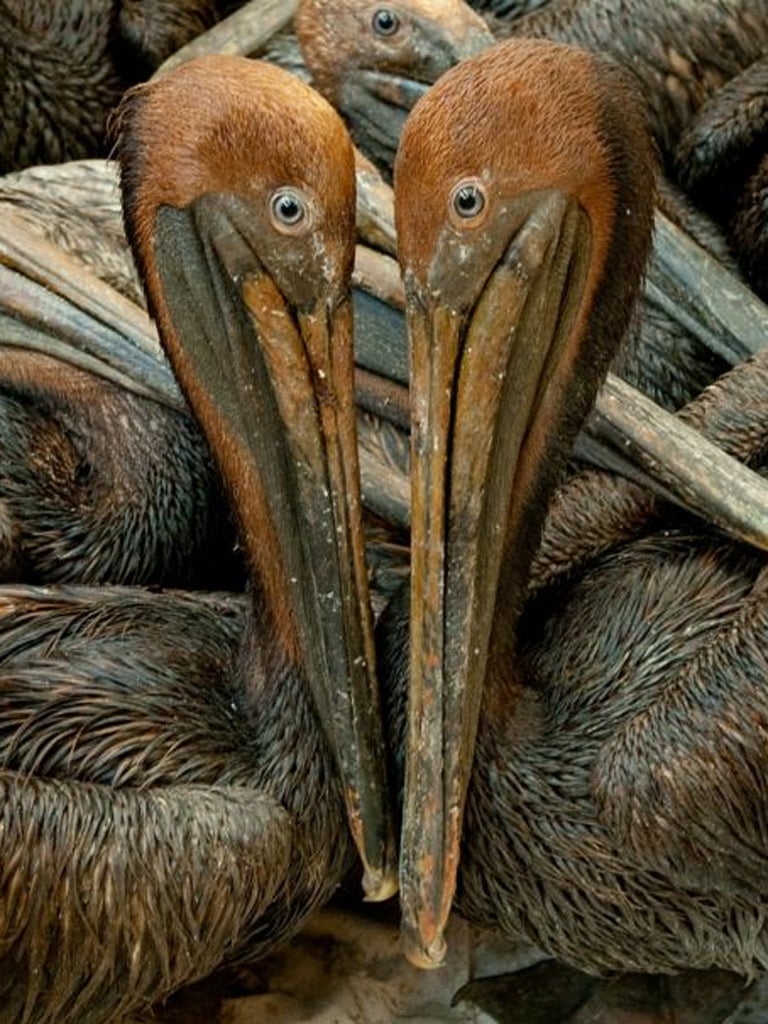BP on trial: US seeks revenge
Stephen Foley says some of the oil giant's American employees are now set to face criminal charges

Oil major BP is bracing itself for criminal charges against some of its American employees, amid allegations that it misled regulators on the dangers posed by the Deepwater Horizon rig which exploded last year killing 11 employees and unleashing the worst offshore oil spill in US history.
A Department of Justice investigation has identified several Houston-based engineers and at least one BP supervisor it expects to charge in the New Year, according to reports yesterday.
The US Attorney-General Eric Holder announced a criminal investigation at the height of the public outcry over the spill, which sent BP shares plunging and even called into question whether it could survive as a company. To date, the British oil giant has taken $41bn (£26.7bn) in charges to cover the cost of the spill, including legal claims against it that will hit the courts in 2012. BP refused to comment on the reports of impending criminal charges against individuals, who could face up to five years in prison if they are found guilty of providing false information in federal documents. The latest developments in the criminal investigation were first reported yesterday by The Wall Street Journal.
"We have been co-operating with all of the investigations into Deepwater Horizon," a BP spokesman said.
The criminal investigation is believed to have zeroed in on data provided to regulators by staff working on the doomed rig, and in particular on details of the pressure in the well. Drilling must keep pressure within a narrow margin between the minimum needed to prevent a blow-out and the maximum possible before it fractures the rock – figures which must be accurately collected and reported to regulators.
Already some employees on the rig have been brought before a grand jury, a panel that will decide on whether to lay criminal charges.
BP itself faces likely criminal charges under the Clean Water Act, for which it has so far allocated $3.5bn. That figure could balloon, analysts say, by more than five times if it is found guilty of gross negligence.
Its lawyers, though, have been fighting the suggestion of gross negligence, pursuing what they have internally dubbed a "multi-causal, multi-party argument". This is that there was fault also among BP's contractors and construction partners on Deepwater Horizon, so its own individual actions cannot amount to gross negligence.
The company is now preparing for the start of a civil trial in New Orleans in February which will apportion blame between BP and its partners, including Transocean, the operator of the rig, and Halliburton, which supplied the cement for the blow-out preventer in the well, a device whose failure was an important cause of the explosion.
Peter Hutton, oil sector analyst at RBC Capital Markets, expects Transocean and Halliburton to settle and agree payments to BP before the New Orleans trial begins on 27 February, despite a public war of words between BP and Halliburton.
"The commercial logic for settlement ahead of the trial remains fundamental for both parties: to go into the trial with such disagreements and potentially destructive capacity to undermine testimony in the eyes of the judge is likely to increase the risk of a ruling nearer the upper end of the range defined under the Clean Water Act."
Halliburton and Transocean between them could pay a contribution of up to $5bn, RBC estimates.
BP shares look set to close flat on 2011, having opened the year at 465.6p. Yesterday, they were up 5.1p to 460.9p. The company, historically a large holding for UK pension funds and income-focused investors, resumed paying a dividend this year, having suspended the payout in the wake of the spill.
The rig exploded on 20 April 2010 and oil gushed into the Gulf of Mexico for three months, releasing an estimated 4.9 million barrels. An official figure for the size of the spill will also be determined in the civil trial starting in February, as will the classes of individuals, businesses and state governments who can claim to have suffered economic losses as a result of the disaster.
Subscribe to Independent Premium to bookmark this article
Want to bookmark your favourite articles and stories to read or reference later? Start your Independent Premium subscription today.

Join our commenting forum
Join thought-provoking conversations, follow other Independent readers and see their replies